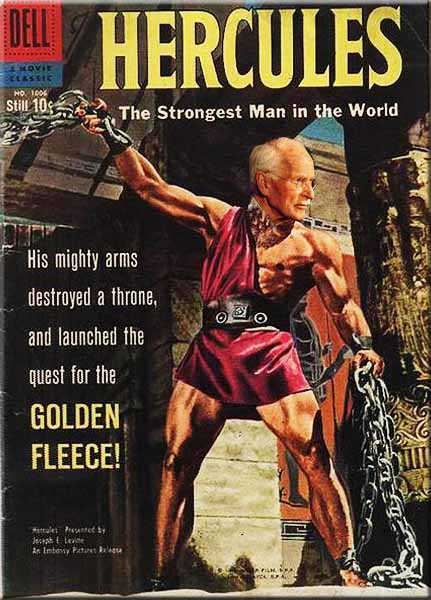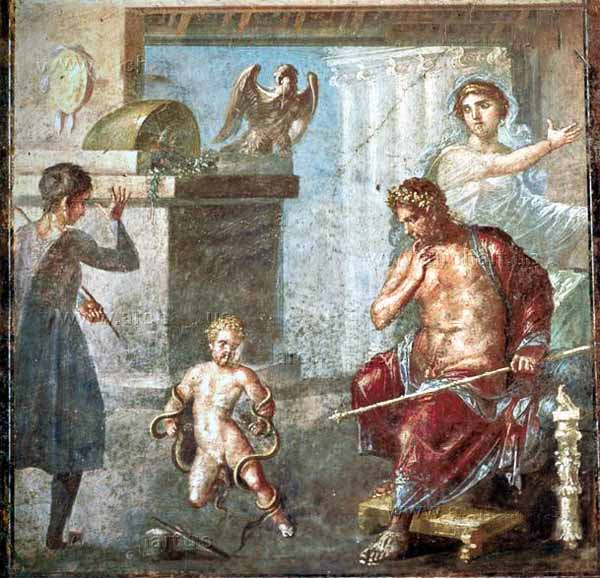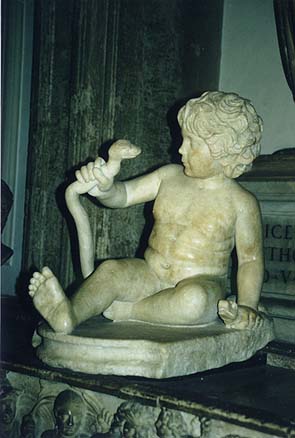What’s the Jungian Spin on those Twelve tasks of Hercules?

Jung and Hercules
When a Jungian hears about tasks that some mythical or fairy-book character has to do, they get pretty excited. There must be some good psychological reasons for these tasks– some analogies, metaphors, similes and parallels to examine. Amplification is the name of the game. So what is the deal with those twelve tasks of Hercules? What kind of psychological truths are lurking in the background?
The place to start is with the origins of the character — in this case, just who were Hercules’ parents and what was their problem:

From Wikipedia: Hercules
Hercules was the illegitimate son of Zeus and Alcmene, the wisest and most beautiful of all mortal women. Hera was enraged at Zeus for his infidelity with Alcmene, and even more so that he placed the infant Hercules at Hera’s breast as she slept and allowed Hercules to feed, which caused Hercules to be partially immortal, thus, allowing him to surpass all mortal men in strength, size and skill. However, Hera still held a spiteful grudge against Hercules and sent Hercules into a blind frenzy, in which he killed all of his children. When Hercules regained his sanity, he sought out the Oracle at Delphi in the hope of making atonement. The Oracle ordered Hercules to serve Eurystheus, king of Mycenae, who sent him on a series of tasks known as the Labors of Hercules.

Hercules, the Latin equivalent of Heracles, was the son of Jupiter and Alcmene. His jealous stepmother, Juno, tried to murder the infant Hercules by putting a serpent in his cradle. Luckily for Hercules, he was born with great strength and killed the serpent. By the time Hercules was an adult, he had already killed a lion. Eventually, Juno drove Hercules insane. Due to his insanity, Hercules killed his wife, Megara, and their three children. Hercules exiled himself because of the shame that he had brought on himself through his lack of sanity.
